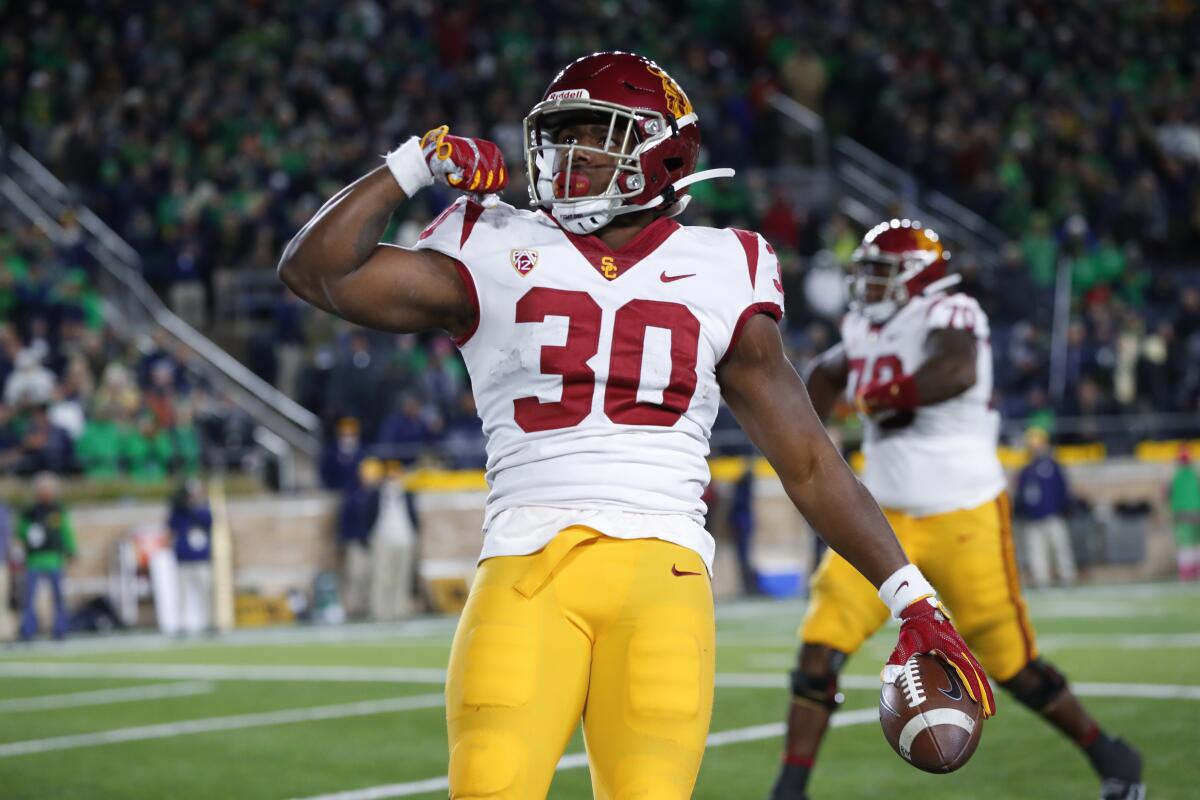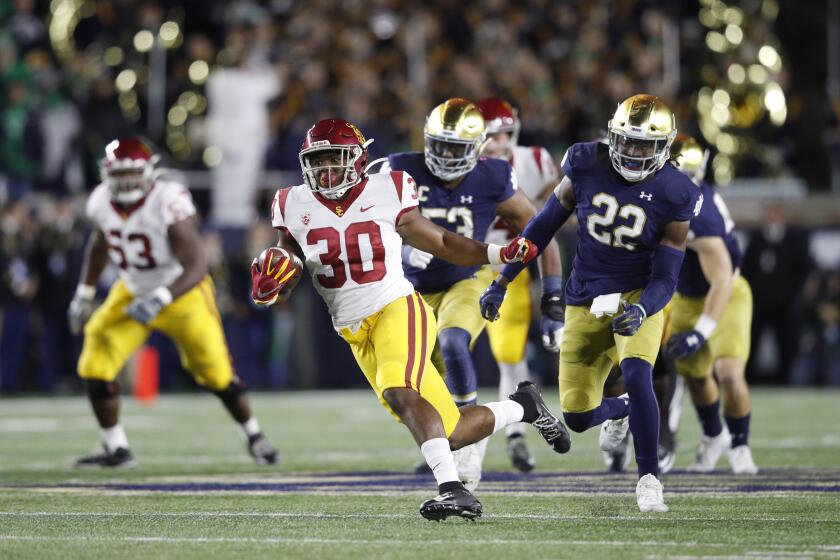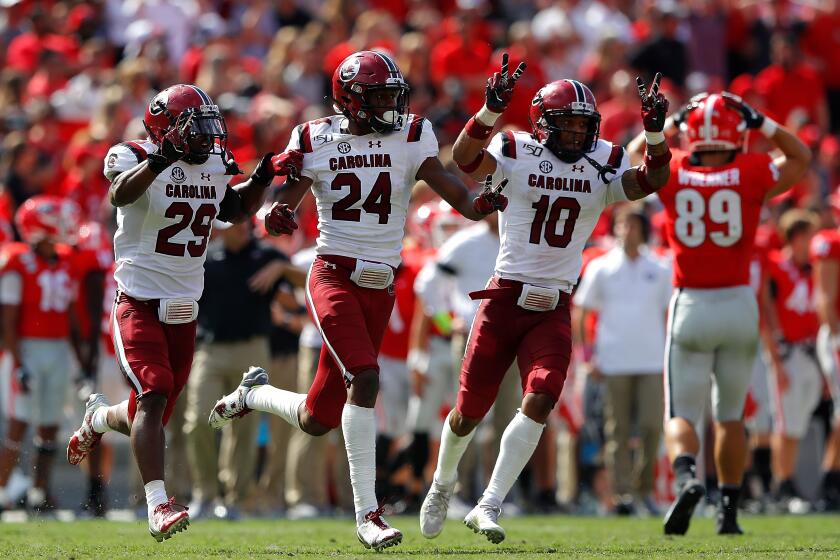Markese Stepp carries a bigger load for USC

- Share via
SOUTH BEND, Ind. — For weeks, his carry count remained confusingly stagnant.
And so, as an even backfield split continued, the questions kept coming, as well: Why wasn’t Markese Stepp, USC’s redshirt freshman running back, carrying a larger load?
On Saturday night, those questions were never louder, as Stepp averaged more than eight yards per carry, scored a touchdown, andat one point, literally carried a pile of Notre Dame defenders latched onto his back.
In his homecoming to the state of Indiana, against the school to which he was once committed, Stepp ran as strong as he has all season, leading the team with 82 yards rushing in a 30-27 loss to the Fighting Irish.
Still, as Stepp strapped the Trojans’ rushing attack on his shoulders, USC’s coaches again approached his carry count with an odd amount of caution. When asked why Stepp didn’t get more carries, just as he seemed to find his stride, USC coach Clay Helton was defiant in suggesting that he had.
“He had a bigger role tonight,” Helton said. “He did a wonderful job with 82 yards on the night. His role got bigger.”
USC and Kedon Slovis made it close at the end, but the Trojans dug an early hole and were unable to stop Notre Dame’s running game in a 30-27 loss.
Stepp still rotated with USC’s two other backs, Stephen Carr and Vavae Malepeai, who combined for 90 yards rushing and each averaged about five yards per carry.
But the redshirt freshman was undoubtedly more effective in a game he played in front of a host of family and friends. Whether that progress will lead to something more, though, remains to be seen.
Questioning the call
On a third down in the third quarter, as linebacker Palaie Gaoteote collided with Notre Dame quarterback Ian Book, a key personal-foul flag was thrown, extending a scoring drive that otherwise would’ve stalled.
Helton did his best not to question the call after the game, but his tone was clear. He did not agree.
“Referees have very hard jobs. And at full speed some calls are hard,” Helton said. “I see it one way, another man may see it and you have to live with those calls as coaches.... But that crew out there is a pro crew. They do a great job out there and some calls go your way, some calls don’t. That call didn’t go our way.”
Another call, or lack thereof, raised questions. As USC attempted an onside kick at the end of the game, one of Notre Dame’s coaches was on the field, Helton said. It was Brian Kelly. Helton asked whether the call could be reviewed, but was denied.
“Should have been a flag,” Helton said.
A look at what happened in Saturday’s college football action, highlighted by South Carolina’s double-overtime win at No. 3 Georgia.
Hufanga returns
After a week in concussion protocol, and another week spent in a no-contact jersey, recovering from a shoulder injury, Talanoa Hufanga returned to the field on Saturday.
But the standout sophomore safety wasn’t quite himself in his first game back.
Two missed tackles from the Trojans’ best tackler led to big plays in the second quarter.
Hufanga’s miss on an option pitch allowed running back Tony Jones to scamper for 43 yards.
Four plays later, Book hit tight end Cole Kmet near the goal line, and Hufanga again missed a tackle.
Defensive injuries
As USC mounted a comeback in the second half, it lost a number of key players on defense to injury, a few of whom managed to fight through their ailment.
Cornerbacks Greg Johnson and Isaac Taylor-Stuart both left hobbled in the second half. Gaoteote also left the game briefly, after spending several minutes on the ground with an injury.
More to Read
Go beyond the scoreboard
Get the latest on L.A.'s teams in the daily Sports Report newsletter.
You may occasionally receive promotional content from the Los Angeles Times.









